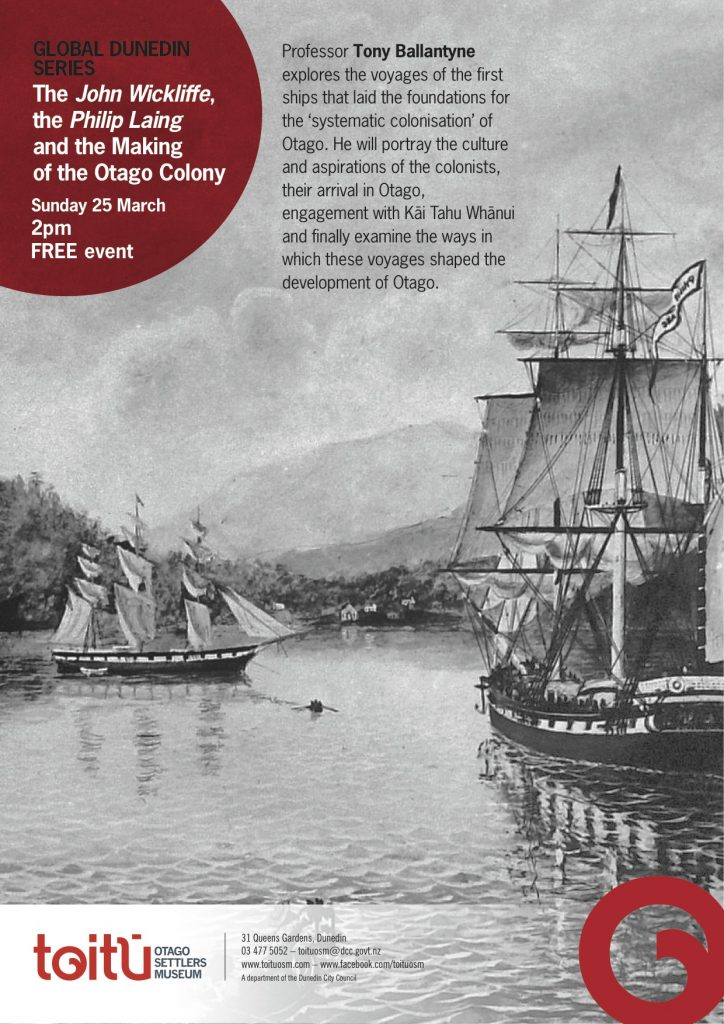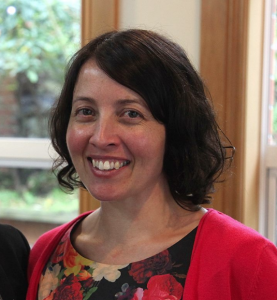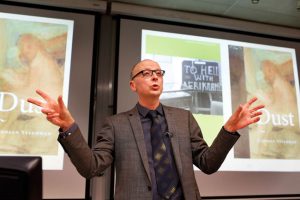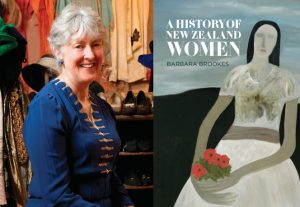Successful Start to Global Dunedin
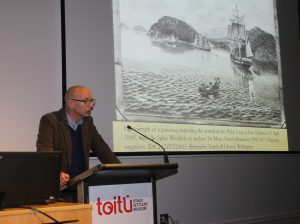 The first Global Dunedin programme at Toitū Otago Settlers Museum began with Centre Co-Director, Professor Tony Ballantyne, presenting on “The John Wickliffe, the Philip Laing and the Making of the Otago Colony”. Tony’s lecture was wide-ranging, taking us from the initial landing of the Free Church settlers, and their interactions with Kāi Tahu, right through to the 50th anniversary, where the the debate centred on who truly deserved to be included into the category of “early” settler.
The first Global Dunedin programme at Toitū Otago Settlers Museum began with Centre Co-Director, Professor Tony Ballantyne, presenting on “The John Wickliffe, the Philip Laing and the Making of the Otago Colony”. Tony’s lecture was wide-ranging, taking us from the initial landing of the Free Church settlers, and their interactions with Kāi Tahu, right through to the 50th anniversary, where the the debate centred on who truly deserved to be included into the category of “early” settler.
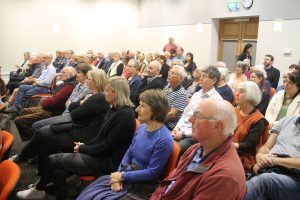 The Centre’s Global Otago programme brings engaging speakers to Toitū, who can place Dunedin in a global context, whether in the past, present or future. This lecture was a resounding success, with more seats having to be brought in to accommodate the crowd. Professor Charlotte Macdonald will be delivering the April lecture; details will be posted soon.
The Centre’s Global Otago programme brings engaging speakers to Toitū, who can place Dunedin in a global context, whether in the past, present or future. This lecture was a resounding success, with more seats having to be brought in to accommodate the crowd. Professor Charlotte Macdonald will be delivering the April lecture; details will be posted soon.
Global Dunedin Speaker Series 2018
This year the Centre is excited to be collaborating with Toitū on a Global Dunedin Speaker Series. It runs on a monthly basis, on a Sunday afternoon, and all talks take place at the museum Auditorium. This years series will feature local, national and international speakers, including Charlotte Macdonald (Victoria University of Wellington), Jill Haley (Canterbury Museum), Kate Bagnall (University of Wollongong), Rosi Crane (Otago Museum), Lea Doughty (Otago) and Ben Schrader (Wellington). We’ll be posting regular updates about this series throughout the year.
Tony Ballantyne will kick off the series on March 25th (see poster). We hope to see you there.
Ernest Scott Prize 2016
The shortlist for the Australian Historical Association’s prestigious Ernest Scott Prize has been announced. On the list is the Centre’s director, Professor Tony Ballantyne, for his book Entanglements of Empire: Missionaries, Māori and the Question of the Body (Auckland University Press, 2015). The Ernest Scott Prize is awarded to the book that has made the most distinguished contribution to Australian or New Zealand history or the history of colonisation.
The judges describe Entanglements of Empire as “a smart, engaging and intelligent new work, which carefully blends New Zealand historical research with new theoretical readings inspired by international scholarship. Pushing disciplinary boundaries, its novel approach in reading the early Missionary-Maori dynamic in a new light, makes this book a new spin on an ‘old’ topic. Employing new frames of reference, guided by a focus on spatial interaction and physical embodiment, this book will invite further re-readings of the early colonial encounter period in New Zealand. Elegantly written, grounded in solid primary research, Entanglements of Empire is focused on re-thinking the history of early colonial New Zealand.”
The winner will be announced at the Kathleen Fitzpatrick Lecture, University of Melbourne, on 26 April.
Congratulations Tony, and good luck!
Three Centre members finalists for best History book award
Professor Tony Ballantyne, Professor Tom Brooking, and Dr Angela Wanhalla, are three of the the four finalists for the inaugural W.H. Oliver Prize for best book on New Zealand history, to be awarded next week at the New Zealand Historical Association conference. The books are Tony Ballantyne, Entanglements of Empire: Missionaries, Maori, and the Question of the Body (AUP); Tom Brooking, Richard Seddon, King of God’s Own: The Life and Times of New Zealand’s Longest Serving Prime Minister (Penguin); and Angela Wanhalla, Matters of the Heart: A History of Interracial Marriage in New Zealand (AUP).
All three finalists are academics within the Department of History and Art History, but also members of the Centre for Research on Colonial Culture. For the full story, read the latest article in the Otago Bulletin Board.
Hocken Lecture
Tony Ballantyne, the incoming PVC Humanities at the University of Otago, departing HoD of History and Art History, and Director of the Centre for Research on Colonial Culture gave the 2015 Hocken Lecture last week. In it, Tony discussed some archive stories that are foundational to his own work, and critiqued claims about archival silences promoted by some postcolonial scholars by pointing to the lively and rich vein of work being produced at the University of Otago, particularly by researchers attached to the Centre. You can read about his lecture in this Otago Bulletin article, which gives a thorough report on its content and maps out Tony’s vision for New Zealand history. Thanks Tony for a wonderful lecture!
Hocken Lecture
The Centre is delighted to hear that this year’s Hocken Lecture will be given by Professor Tony Ballantyne, the Centre’s director and the Head of the Department of History and Art History at the University of Otago. He will talk on ‘Archives, Public Memory and the Work of History’ in the Burns 1 Lecture Theatre, 95 Albany Street, on 6 August, beginning at 5.30pm. This is a free event and all are welcome.
Quick News: Overseas Invitations
Two of CROCC’s members are currently in Australia, having been invited to give presentations at universities there. CROCC Director is at the University of Brisbane, and gave a talk last night on “Colonial Knowledge Making” to the Centre for the History of European Discourses.
Angela Wanhalla will be presenting today on the Mothers Darlings Project, at the University of Melbourne, as part of the “Writing the Pacific: Re-writing Australia” symposium.
W.H. Oliver Lecture at Palmerston North
Our Centre Director, Professor Tony Ballantyne, will be giving the W.H. Oliver Lecture for 2014. This event is held annually at Massey University, Palmerston North in honour of the eminent New Zealand historian, Professor Bill Oliver. Click here for further details of this public lecture.
Mary Boyd Prize
Congratulations to Tony Ballantyne of CRoCC in winning the inaugural Mary Boyd Prize for the best published history essay. The judges were Margaret Tennant (Massey) and Felicity Barnes (Auckland) and was awarded at the NZHA conference dinner at Otākou Marae on Thursday 21 November for his essay “On Space, Place and Mobililty in Nineteenth-Century New Zealand” in the New Zealand Journal of History April 2011.

